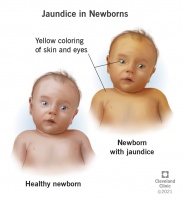Norton, K., Norton, L. and Sadgrove, D. (2010) Position statement on physical activity and exercise intensity terminology. Journal of Science and Medicine in Sport, 13, 469
Norton, K., Norton, L. and Sadgrove, D. (2010) Position statement on physical activity and exercise intensity terminology. Journal of Science and Medicine in Sport, 13, 469-502.
has been cited by the following article:
TITLE: Physiotherapist-led home-based physical activity program versus community group exercise for middle-aged adults: Quasi-experimental comparison
AUTHORS: Nicole Freene, Gordon Waddington, Wendy Chesworth, Rachel Davey, Tom Cochrane
KEYWORDS: Physiotherapy; Home-Based; Physical Activity; Adoption; Adherence; Middle-Aged
JOURNAL NAME: Open Journal of Preventive Medicine, Vol.3 No.2, April 30, 2013
ABSTRACT:Objectives: Program method, program deliverer and participant preference may be important factors in increasing physical activity adherence and program effectiveness. To investigate this, we compared two physical activity interventions in middle-aged adults. Methods: Using a pragmatic quasi-experimental design, sedentary community dwelling 50 - 65 year olds (n = 2105) were recruited to a non-randomized 6-month community group exercise program (n = 93) or a physiotherapist-led home-based physical activity program (n = 65). The primary outcome was physical activity adherence derived from exercise diaries. Secondary outcomes included the Active Australia Survey, aerobic capacity (step- test), quality of life (SF-12v2), blood pressure, waist circumference, waist-to-hip ratio (WHR) and body mass index. Results: Home-based participants were more likely to be younger, working full-time and not in a relationship (p Thirty-three percent of the group participants attended ≥ 70% of group exercise sessions. Ninety percent of home-based participants received ≥ 4 of the planned 6 telephone support calls. Intention-to-treat analysis found adherence to the physical activity sessions prescribed was the same for both interventions (26% ± 28% vs. 28% ± 35%). Both interventions significantly increased the number of participants achieving self-reported “sufficient” physical activity (p ≤ 0.001) and significantly decreased waist circumference (pWHR (p 0.05). Conclusion: The physiotherapist- led home-based physical activity program, requiring few resources, appears to have increased the adoption of physical activity and adherence to physical activity program requirements for sedentary middle-aged adults. The home-based program, providing equivalent health benefits to the group exercise program, may be particularly suitable for those not interested in or unable to attend a group exercise program. Clinical Trial Registration number Australian New Zealand Clinical Trials Registry (ANZCTR), ACTRN126 1000890932.
Related Articles:
George E. Chatzarakis
Rafael Serrano-del-Rosal, Lourdes Biedma-Velázquez, David Moscoso-Sánchez, María Martín-Rodríguez
Abdirahman Alasow, Marek Perkowski
Aimee Wilson, Matthew Fuller, Shannon Smith, Tony V. Johnston, John D. Du Bois
Amanda L. Uhls, Nolan Jolley, Tony V. Johnston, John D. DuBois
相关知识
Norton, K., Norton, L. and Sadgrove, D. (2010) Position statement on physical activity and exercise intensity terminology. Journal of Science and Medicine in Sport, 13, 469
The Hydration Equation: Update on Water Balance and Cognitive Performance
Going digital – a commentary on the terminology used at the intersection of physical activity and digital health,European Review of Aging and Physical Activity
Research progress and potential mechanism of postbiotics in alleviating gastrointestinal diseases
List of Exercise Goals and Objectives
Research status and prospect of household energy consumption impact on eco
Benefits of Sexual Activity on Psychological, Relational, and Sexual Health During the COVID
Wellness promotion beliefs and practices of pediatric physical therapists
Interaction between polysaccharide and intestinal flora and its structure
运动与健康科学(英文) Journal of Sport and Health Science(JSHS)
网址: Norton, K., Norton, L. and Sadgrove, D. (2010) Position statement on physical activity and exercise intensity terminology. Journal of Science and Medicine in Sport, 13, 469 https://m.trfsz.com/newsview1397738.html
